Producer
In ecology, a producer is an organism that can produce its own food through the process of photosynthesis. This process involves using sunlight, carbon dioxide, and water to create glucose (a type of sugar) and oxygen. Producers are typically green plants, algae, and some bacteria. They are vital to ecosystems as they form the base of the food chain, providing energy for all other organisms.
Key Points to Remember:
- Producers are organisms that can make their own food through photosynthesis.
- They use sunlight, carbon dioxide, and water to produce glucose and oxygen.
- Examples of producers include green plants, algae, and some bacteria.
- Producers form the base of the food chain in ecosystems.
Study Questions:
- What is a producer in ecology?
- What process do producers use to make their own food?
- Give examples of producers in nature.
- Explain the importance of producers in ecosystems.
Study Tips:
When studying the concept of producers, it's important to understand the process of photosynthesis and its role in sustaining life on Earth. Make sure to review the key characteristics of producers and how they contribute to the overall balance of ecosystems.
[Producer] Related Worksheets and Study Guides:
.◂Science Worksheets and Study Guides Fifth Grade. Flowers and seeds
Study Guide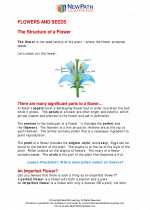 Flowers and seeds
Flowers and seeds  Activity Lesson
Activity Lesson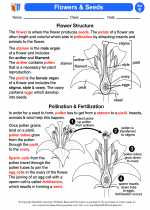 Flowers & Seeds
Flowers & Seeds  Worksheet/Answer key
Worksheet/Answer key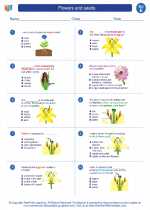 Flowers and seeds
Flowers and seeds  Worksheet/Answer key
Worksheet/Answer key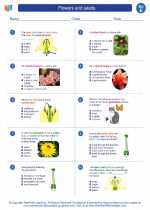 Flowers and seeds
Flowers and seeds  Worksheet/Answer key
Worksheet/Answer key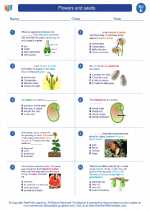 Flowers and seeds
Flowers and seeds  Worksheet/Answer key
Worksheet/Answer key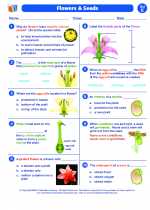 Flowers and seeds
Flowers and seeds  Vocabulary/Answer key
Vocabulary/Answer key Flowers and seeds
Flowers and seeds  Vocabulary/Answer key
Vocabulary/Answer key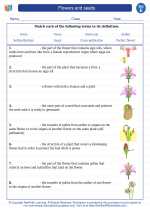 Flowers and seeds
Flowers and seeds 

 Activity Lesson
Activity Lesson
 Worksheet/Answer key
Worksheet/Answer key
 Worksheet/Answer key
Worksheet/Answer key
 Worksheet/Answer key
Worksheet/Answer key
 Worksheet/Answer key
Worksheet/Answer key
 Vocabulary/Answer key
Vocabulary/Answer key
 Vocabulary/Answer key
Vocabulary/Answer key

The resources above cover the following skills:
Life Science
All organisms have structures and systems with separate functions. Students can:
Develop and communicate an evidence-based scientific explanation of the role of different organs or structures that are important for an organism's survival - in both plants and animals